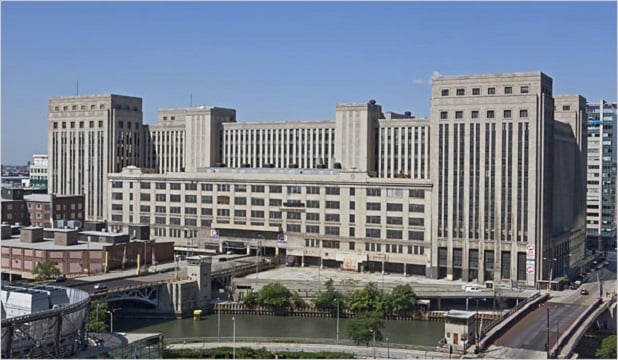
CHICAGO—When Amazon requested that cities put together proposals for a future second headquarters, dubbed HQ2, that will complement its Seattle hub, one of the first criteria mentioned was that the metropolitan area must contain at least one million people. By that measure, however, more than 50 US cities are eligible. Many observers feel a much smaller group of metros have the true inside track, and Chicago is one of the likely frontrunners. But Amazon probably had a good reason for putting out the call to so many locales.
“The statistics, data and research on these cities is incredibly expensive and time consuming to produce,” Emily Line, vice president of commercial services for Realtors Property Resource, a wholly-owned subsidiary of the National Association of REALTORS, tells GlobeSt.com. But through these efforts, Amazon will soon have a free library of data on all of these areas. And although many cities don't have much of a shot at securing HQ2, which the Seattle-based giant says will host up to 50,000 employees and cost $5 billion, they could benefit later on as the company establishes other smaller outposts.
What qualities should land Chicago at or near the top of Amazon's list? Line says the same qualities that brought in companies such as Motorola Solutions, Caterpillar, Boeing and McDonald's. “The success these major businesses have found has to be encouraging to Amazon.” The city has definitely proven it has a critical mass of young talent, perhaps the most important factor, along with walkable office submarkets like the West Loop, and a cost of living that compares very favorably with the nation's coastal cities.
“It's staggering the number of huge companies that have moved from Chicago's suburbs and into the downtown,” Deena Zimmerman, vice president in the SVN Chicago office, also tells GlobeSt.com. She adds that the West Loop seems tailor-made for Amazon. Not so long ago, the neighborhood was famous primarily for its restaurants, but today it's also known as home to the regional offices of Google, Twitter and Uber, and the future site of McDonald's headquarters. It also has the Old Post Office, a vacant structure of more than one million square feet sitting over an expressway that developers say could form the nucleus of a major new office complex. “They'll need a big footprint, and I feel like this option makes perfect sense. It's been vacant forever; it's huge, and it's in a great location.”
Aside from offering access to a highly-educated workforce, Chicago has geographic advantages over most North American cities. “I would be shocked if Amazon went further east than Middle America,” says Zimmerman. A headquarters in the Central Time Zone can be useful to a global corporation that needs to coordinate between the US West Coast and Europe during the day. That will keep metros such as St. Louis, Dallas and the Twin Cities in the running.
But these areas can't match Chicago combination of talent, several major airports, a dense network of interstate highways, available land, and rising office submarkets that host forward-looking companies, she adds. “If I were representing Amazon, that's where I'd put them.”
© Touchpoint Markets, All Rights Reserved. Request academic re-use from www.copyright.com. All other uses, submit a request to [email protected]. For more inforrmation visit Asset & Logo Licensing.








